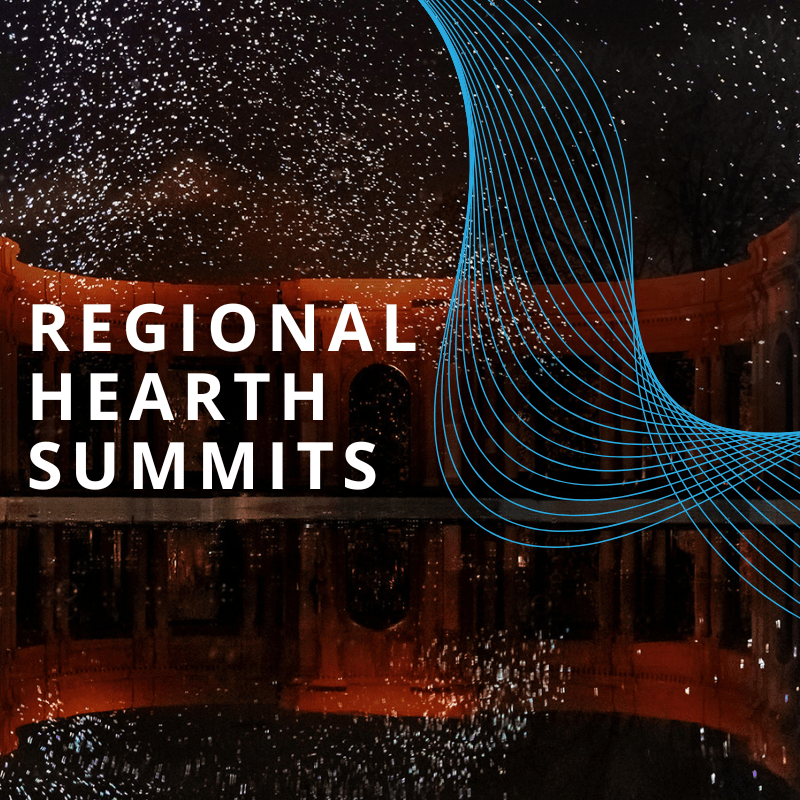Your Brain on Wellbeing: 7 Insights From a Neuroscientist Your Brain on Wellbeing: 7 Insights From a Neuroscientist
Stories from the Hearth
Watch the full session from Hearth Summit São Paulo.
Quick Reads
- Understanding how the brain and body function can be powerful tools in enhancing your personal wellbeing.
- Strengthening the prefrontal cortex with mindfulness improves emotional stability and stress management.
- Boosting dopamine, serotonin, and oxytocin through exercise and social bonding enhances happiness.
- Managing stress with relaxation techniques protects memory and brain health.
- Lifelong learning and positive thinking enhance neuroplasticity and resilience.
Understanding the neuroscience behind wellbeing can help us make informed choices to improve our mental and emotional health. At Hearth Summit São Paulo, Dr. Raquel Tatar, Chief Scientific Officer and Chief Operating Officer, the Center for Healthy Minds, shared the dimensions of wellbeing, as seen through a neuroscientific lens, to help changemakers better understand how wellbeing “works” on a physical level.
Here are seven essential takeaways to help you harness neuroscience for a healthier mind and a greater sense of wellbeing.
The Brain’s Role in Emotional Regulation
Raquel explained how the prefrontal cortex plays a critical role in regulating emotions, managing stress, and helping us make thoughtful decisions. When this area is well-developed, we can respond to challenges with greater control and resilience. Strengthening the prefrontal cortex through mindfulness, meditation, and cognitive exercises can improve emotional stability and reduce impulsive reactions. These practices train the brain to process emotions in a healthier way, leading to better mental well-being over time.
The Impact of Neurotransmitters on Happiness
Happiness is not just a feeling—it’s a result of chemical processes in the brain. Three key neurotransmitters: dopamine (the reward chemical), serotonin (the mood stabilizer), and oxytocin (the bonding hormone) play vital Naturally boosting these neurotransmitters via activities such as exercise, social bonding, and exposure to sunlight can help us feel happier and more connected to others.
How Does Stress Affects Brain Function?
Chronic stress has a profound impact on the brain, weakening neural connections and shrinking the hippocampus — the area responsible for learning and memory. Prolonged exposure to stress hormones like cortisol can lead to anxiety, depression, and cognitive decline. However, there are effective ways to counteract these effects. Raquel emphasized the importance of stress management techniques, including deep breathing, physical activity, and relaxation exercises, to help the brain maintain proper functioning under stress and pressure.
The Science of Neuroplasticity
One of the most exciting aspects of neuroscience is the brain’s ability to adapt and rewire itself, a phenomenon known as neuroplasticity. Engaging in lifelong learning, practicing new skills, and embracing challenges help strengthen neural pathways and keep the brain agile. Even simple activities like reading, learning a new language, or trying out a different hobby can enhance cognitive flexibility. The more we challenge our brains, the better they function in the long run.
Sleep’s Critical Role in Brain Health
Quality sleep is essential for mental clarity, emotional regulation, and memory consolidation. Requel explained that during deep sleep, the brain undergoes a cleansing process, removing toxins that accumulate throughout the day. Lack of sleep disrupts this process, leading to cognitive fog, irritability, and impaired decision-making. To improve sleep quality, she recommends maintaining a consistent sleep schedule, reducing screen time before bed, and creating a restful sleeping environment.
The Gut-Brain Connection
Emerging research shows that gut health significantly influences brain function and mood. Tatar describes how the gut microbiome produces neurotransmitters like serotonin, which directly impact our emotions. A diet rich in probiotics, fiber, and essential nutrients supports a healthy gut, which in turn promotes better mental health. Small dietary changes — such as eating more fermented foods, whole grains, and vegetables — can have a positive effect on your cognitive function and emotional well-being.
The Power of Gratitude and Positive Thinking
Practicing gratitude and focusing on positive experiences can rewire the brain for happiness. Raquel described that when we repeatedly focus on positive thoughts, we strengthen neural pathways associated with optimism and resilience. Keeping a gratitude journal, reflecting on daily achievements, and actively acknowledging the good in life can create lasting changes in brain function. Over time, these practices make it easier to maintain a positive outlook and handle life’s challenges with greater ease.
By applying these neuroscience-based insights, you can take meaningful steps to enhance your wellbeing. These strategies provide a science-backed approach to improving mental and emotional health. Understanding how the brain works empowers us to make choices that lead to a healthier, happier life. Want more research on wellbeing and how it works? Visit our research hub for insights from leading experts and institutions.
The science of wellbeing is a key topic that is explored at the Hearth Summits taking place around the world. Want to join in?





















































